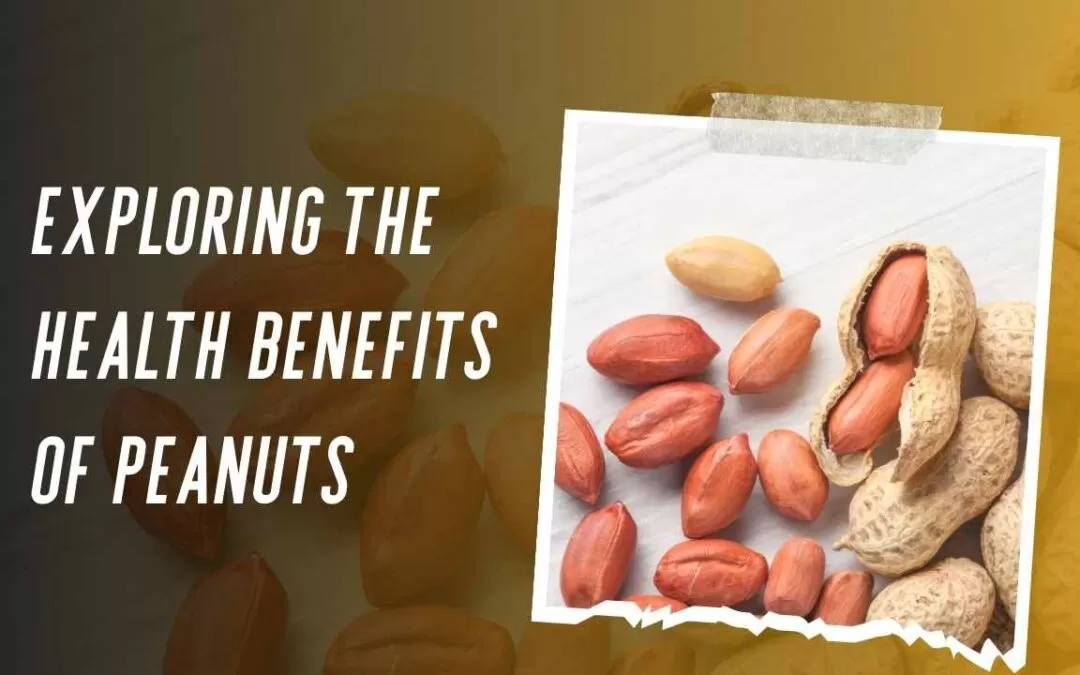Peanuts are a popular food that is enjoyed by people all over the world. Exploring the Health Benefits of Peanuts They are a rich source of protein, fiber, and healthy fats, making them a nutritious and satisfying snack. In addition to being a tasty food, peanuts have many health benefits, including reducing the risk of heart disease, improving blood sugar control, and helping with weight management. However, peanuts also have some potential side effects, such as causing digestive issues, increasing the risk of aflatoxin contamination, and triggering allergic reactions in some individuals. In this article, we will take a closer look at the benefits and side effects of peanuts to help you make an informed decision about whether they are the right food for you. Benefits of Peanuts
Exploring the Health Benefits of Peanuts
- Rich in Nutrients: Peanuts are an excellent source of nutrients, including protein, fiber, healthy fats, vitamins, and minerals. One serving of peanuts (28 grams) provides 7 grams of protein, 2 grams of fiber, and 12 grams of healthy unsaturated fats. Peanuts are also a good source of vitamins and minerals, including vitamin E, magnesium, and potassium. Benefits of Peanuts
- Reduce Heart Disease Risk: Peanuts contain high levels of healthy unsaturated fats, which have been shown to reduce the risk of heart disease. The monounsaturated and polyunsaturated fats found in peanuts can help lower LDL (bad) cholesterol levels and reduce the risk of heart disease.
- Improve Blood Sugar Control: Peanuts contain high levels of fiber and protein, which can help regulate blood sugar levels. This is important for individuals with diabetes, as it can help prevent blood sugar spikes after eating. Benefits of Peanuts
- Help with Weight Management: Peanuts are a low-calorie, high-protein food that can help with weight management. The fiber and protein in peanuts can help you feel full for a longer period of time, reducing the risk of overeating and snacking on unhealthy foods. Benefits of Peanuts
- May Reduce the Risk of Certain Cancers: Peanuts contain high levels of phytochemicals, which are plant compounds that have been shown to reduce the risk of certain cancers. For example, peanuts contain resveratrol, a phytochemical that has been linked to a reduced risk of breast cancer.

Side Effects of Peanuts
- Digestive Issues: Some people may experience digestive issues when consuming peanuts, such as bloating, gas, and abdominal pain. This is because peanuts contain oligosaccharides, which are complex sugars that are difficult for the body to digest. Benefits of Peanuts
- Aflatoxin Contamination: Peanuts are susceptible to contamination by aflatoxins, which are toxic compounds produced by certain strains of fungi. Aflatoxin contamination can occur during the growing, harvesting, and storage of peanuts, and can cause serious health problems, including liver cancer. Benefits of Peanuts
- Allergic Reactions: Peanuts are one of the most common food allergens, and can cause severe allergic reactions in some individuals. Allergic reactions to peanuts can include itching, swelling, hives, and difficulty breathing, and in severe cases, can be life-threatening.
- High in Calories: Peanuts are high in calories, and consuming too many can lead to weight gain. One serving of peanuts (28 grams) contains approximately 170 calories, and consuming large portions can quickly add up. Benefits of Peanuts
- Interactions with Medications: Peanuts contain high levels of tyramine, which can interact with certain medications, such as monoamine oxidase inhibitors (MAOIs). This can lead to increased blood pressure, headaches, and other symptoms. Benefits of Peanuts

Frequently Asked Question (FAQs):-
1. Are peanuts good for my health?
A. Absolutely! Peanuts are packed with essential nutrients that offer a range of health benefits when consumed in moderation.
2. What nutritional value do peanuts offer?
A. Peanuts are rich in protein, healthy fats, fiber, and various vitamins and minerals such as folate, vitamin E, magnesium, and potassium.
3. Can peanuts help with weight management?
A. Yes, peanuts can aid weight management due to their high protein and fiber content, which helps promote feelings of fullness and reduces overeating. Benefits of Peanuts
4. Do peanuts contribute to heart health?
A. Yes, peanuts contain heart-healthy monounsaturated fats and antioxidants like resveratrol, which can help reduce the risk of heart disease.
5. Are peanuts a good source of protein?
A. Absolutely, peanuts are an excellent plant-based source of protein, making them a great option for vegetarians and vegans. Benefits of Peanuts
6. Do peanuts have any potential allergy risks?
A. Yes, peanuts are one of the most common allergens. People with peanut allergies should avoid peanuts and peanut products to prevent allergic reactions.
7. Can peanuts help control blood sugar levels?
A. Yes, the combination of protein, healthy fats, and fiber in peanuts can help stabilize blood sugar levels, making them a suitable snack for diabetics. Exploring the Health Benefits of Peanuts
8. Are there any cognitive benefits to consuming peanuts?
A. Yes, peanuts contain nutrients like vitamin E and resveratrol that have been linked to brain health and may help protect against cognitive decline.
9. Do peanuts have any anti-inflammatory properties?
A. Yes, the antioxidants and monounsaturated fats in peanuts contribute to their anti-inflammatory effects, potentially reducing the risk of chronic diseases.
10. How should I incorporate peanuts into my diet?
A. You can enjoy peanuts as a snack, add them to salads, blend them into nut butter, or use them in various recipes for added flavor and nutrition. Exploring the Health Benefits of Peanuts
Remember, while peanuts offer numerous health benefits, it’s important to enjoy them as part of a balanced diet and consider individual dietary needs and allergies.

